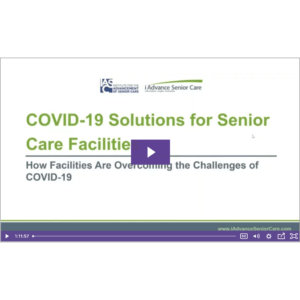When domestic violence comes to the workplace
Domestic violence is a subject that none of us wants to talk about, and all of us wish we never had to address. But sometimes an employee’s problems at home can follow him or her to work. The risk of domestic violence incidents finding their way into the workplace community is very real and can end with catastrophic consequences.
Consider the 2009 incident at Pinelake Health and Rehab in Carthage, N.C. Robert Stewart drove to Pinelake with the intent of shooting his wife, an employee at the facility, who had recently filed for divorce. As he approached the building, Stewart shot a visitor in the parking lot. Unable to get to his wife, who was working in a locked Alzheimer’s unit, Stewart began randomly shooting residents and staff. By the time police arrived on the scene, Stewart had killed seven residents and one employee.
Domestic violence is a pattern of abuse by one partner against the other for the purpose of maintaining power and control. Domestic violence does not always include physical abuse; other recognized forms include:
- sexual abuse
- verbal abuse
- isolation or restriction from friends, family and other support systems
- destruction of property
- financial exploitation
- jealousy and possessive stalking
- monitoring the other person’s behavior
As you can see, it goes well beyond physical battering. And sadly, often the offender does not even realize that his/her behavior constitutes domestic violence; yet to the victim, the pain and injuries go much deeper than just the skin. Over the years, I have worked with several companies after an incident of domestic occurs (including fatal incidents), and have seen firsthand the catastrophic impact it has on employees—and on future business.
So what can we advise our employees to do? At work, employees should take the following precautions:
FOR AN EMPLOYEE EXPERIENCING DOMESTIC VIOLENCE:
- Notify your supervisor about circumstances of your situation so that you can be safe in the workplace.
- Discuss options available to you, such a scheduling changes, safety precautions, special parking arrangements, escorts into and out of the building, etc.
- Obtain an Order of Protection if you're being physically abused.
- Submit a recent photo of the perpetrator to the security or human resources administrator so that person may be recognized if he or she enters the building.
- Contact human resources for confidential help and advice, and for access to the Employee Assistance Prorgam (EAP) for additional assistance.
FOR COWORKERS OF SOMEONE EXPERIENCING DOMESTIC VIOLENCE:
- If you suspect a coworker is suffering abuse, do not directly confront him or her. It is important for an individual to self-disclose, for his or her own safety, well-being and privacy.
- Express concern and willingness to listen and be supportive.
- Offer support and listening; when the individual is ready, they will confide.
- Suggest the individual contact the human resource department or the EAP for confidential help and advice if there's a problem.
- If you witness an incident at work, notify security and/or human resources right away. Make sure the incident is documented.
FOR THE SUPERVISOR OR MANAGER OF AN EMPLOYEE WHO IS EXPERIENCING DOMESTIC VIOLENCE:
- Be aware of unusual absences or behaviors and take note of any physical signs or any emotional distress.
- Offer your support and listening; let the employee know that you're available should they decide to discuss the problem.
- Do not try to diagnose or help solve the problem.
- If the employee has disclosed the situation to you, you may contact the EAP or the Human Resources Department to discuss resources available to the employee.
- Assist the employee in documenting all incidents which occurred in the workplace.
- Encourage the employee to seek help.
- Do not discuss the situation with anyone without the employee’s knowledge and permission. This is very important.
- If the employee’s job performance is suffering as a result of a personal problem, use regular, administrative remedies to deal with those issues. Avoid lumping personal problems in with job performance issues.
Domestic violence is a crime that crosses all barriers. It is not limited to any race, religious denomination, financial class, social group or any other category. Any person can be a victim, and others around the person may not even be aware. One thing we can be sure of: Violence doesn’t stop at our organizations’ front doors, so knowing how to handle threats and acts of domestic violence can help protect everyone on the campus.

Steve Wilder, CHSP, STS, is president and chief operating officer of Sorensen, Wilder & Associates (SWA), a healthcare safety and security consulting group based in Bourbonnais, Ill. SWA performs workplace safety compliance audits and security vulnerability assessments in all types of healthcare facilities. Wilder can be reached at (800) 568-2931 or swilder@swa4safety.com.
Related Articles
Topics: Disaster Preparedness , Executive Leadership










